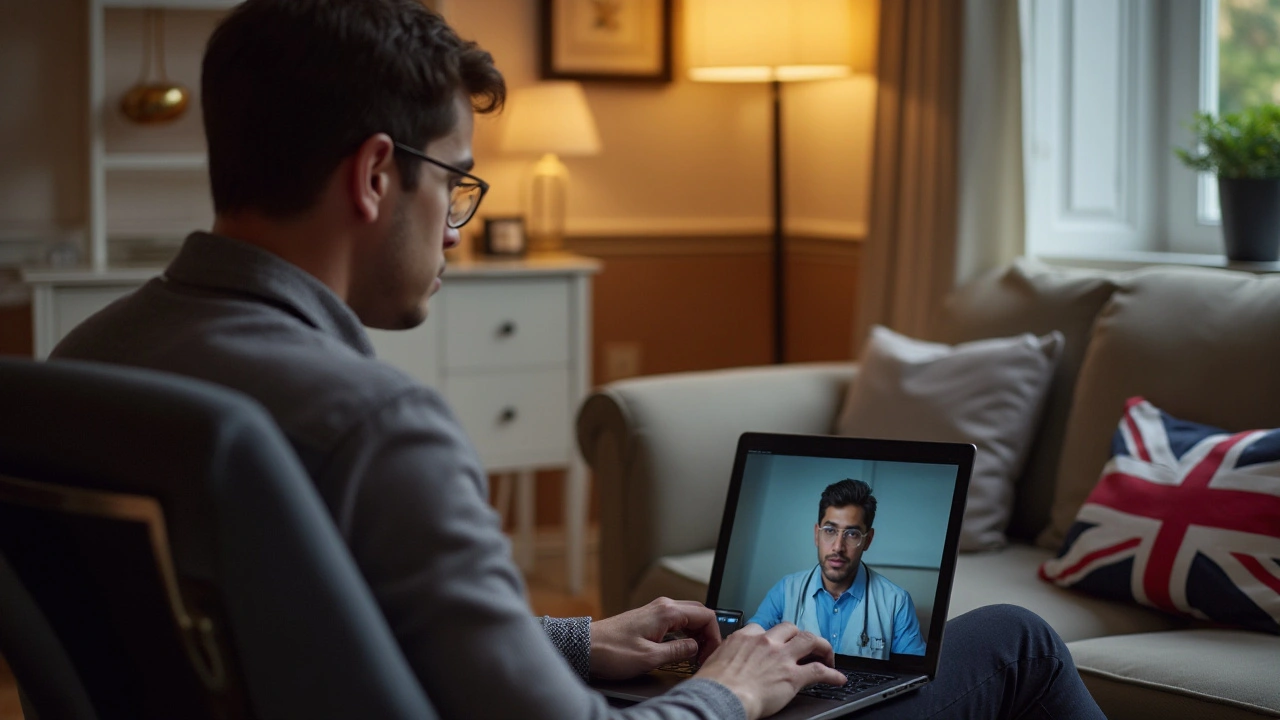If you’ve ever wondered why doctors are now on your phone, you’re not alone. Telehealth services let you see a clinician through video, chat, or even a quick call. No need to drive, wait in a lobby, or take time off work – you get care from wherever you have internet.
These services cover everything from routine check‑ups and prescription refills to mental health counseling and urgent advice. The idea is simple: use technology to bring the clinic to your couch.
The first step is picking a platform that matches your needs. Big pharmacy chains, insurance companies, and dedicated telehealth startups all offer apps or web portals. Look for one that is HIPAA‑compliant (that means they protect your health data) and accepts your insurance if you have it.
Once you’re signed up, schedule an appointment just like you would in person. You’ll receive a confirmation with a link to join the video call. On the day of the visit, make sure your device – phone, tablet, or computer – has a working camera and microphone. A stable Wi‑Fi connection (at least 5 Mbps) helps avoid lag.
During the session, the clinician will ask about symptoms, review any meds you’re taking, and may request you to show affected areas on camera. For prescriptions, most platforms can send the drug directly to your pharmacy or mail it to you. Follow‑up appointments are usually just a click away.
1. Prep your space. Find a quiet room with good lighting and minimal background noise. This makes it easier for the doctor to see you and hear you clearly.
2. Have your info ready. Keep a list of current medications, allergies, and recent test results handy. Some platforms let you upload documents before the call.
3. Test tech early. Open the app 5‑10 minutes ahead of time to check camera, mic, and internet speed. If something glitches, you can quickly switch to a phone call instead.
4. Ask about costs. Many services charge per visit, while others are covered by insurance. Confirm the price before the appointment so there’s no surprise later.
5. Know what’s not covered. Telehealth is great for many issues, but serious emergencies still need an ER or in‑person doctor. If you have severe chest pain, trouble breathing, or heavy bleeding, call 911 instead of logging on.
6. Follow post‑visit instructions. The clinician may send a summary, lab orders, or a prescription. Follow these steps promptly to get the best outcome.
Telehealth services keep evolving. New tools like remote monitoring devices (blood pressure cuffs, glucose meters) can feed data straight into your virtual visit. As more insurers and employers add telehealth benefits, you’ll likely see lower out‑of‑pocket costs.
Bottom line: Telehealth is a convenient, safe way to get medical help without leaving home. Pick a reputable platform, set up your tech, and treat the virtual appointment like any other doctor visit – prepared, honest, and focused on your health.

Discover eight alternatives to rexmd.com for men's health solutions in 2024. This article explores a variety of telehealth services offering treatments for erectile dysfunction, hair loss, and other wellness issues. Each alternative provides unique features such as virtual consultations, discreet delivery, and comprehensive health services. Whether you seek the convenience of telehealth or prefer in-person consultations, explore the options that best suit your needs.
Psychiatric polypharmacy-taking multiple mental health medications at once-is common but often unsupported by evidence. Learn why it happens, the risks involved, and how to safely reduce unnecessary drugs without losing stability.
Many people wrongly avoid safe medications like blood pressure pills due to a misunderstood sulfa allergy. Learn the real risks, which drugs are truly dangerous, and how to fix your medical records.
As a blogger, I've come across some interesting information about the connection between atrophic gastritis and gastric cancer. Atrophic gastritis is a chronic inflammation of the stomach lining, which leads to the loss of gastric glandular cells and their eventual replacement by intestinal and fibrous tissues. This condition is considered a significant risk factor for gastric cancer, as it causes a gradual decline in gastric acid production and an increase in the production of gastrin, a hormone that promotes cell growth. With the loss of normal stomach function, the risk of developing gastric cancer significantly increases, especially in cases of autoimmune or H. pylori-induced gastritis. It's crucial to monitor and manage atrophic gastritis symptoms to reduce the risk of gastric cancer and maintain overall digestive health.
If you're taking atazanavir for HIV, you have legal rights at work. Learn what accommodations you can request, how to ask for them, and how to protect yourself from discrimination-all without revealing your diagnosis.
As a blogger, I've recently delved into the role of surgery in treating Graves' disease. Surgery, specifically thyroidectomy, is one of the three primary treatment options for this condition, alongside medication and radioactive iodine therapy. It involves removing all or part of the thyroid gland, which can provide long-term relief from symptoms. Although it may not be the first choice for many patients, surgery can be especially beneficial for those with large goiters, pregnant women, or individuals who cannot tolerate other treatments. Overall, surgery plays a crucial role in Graves' disease treatment and can offer life-changing results for patients in specific circumstances.